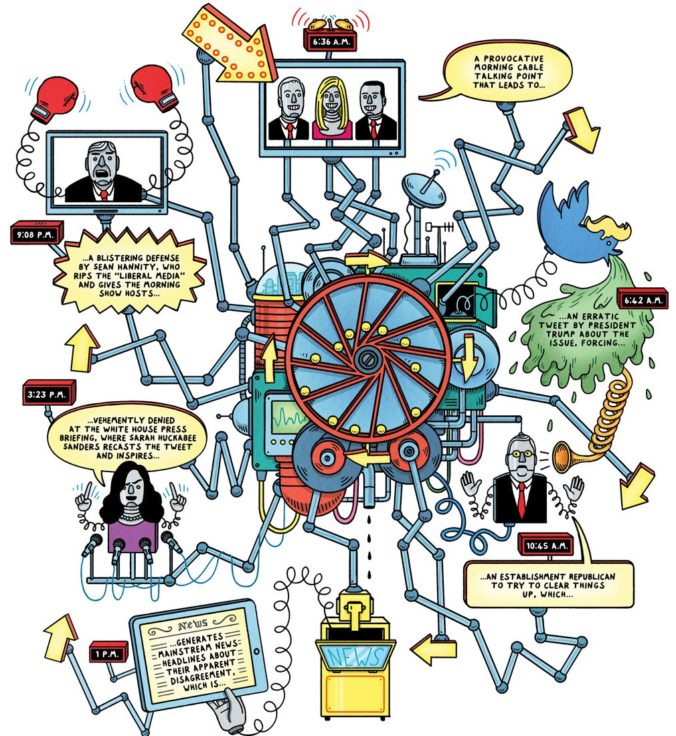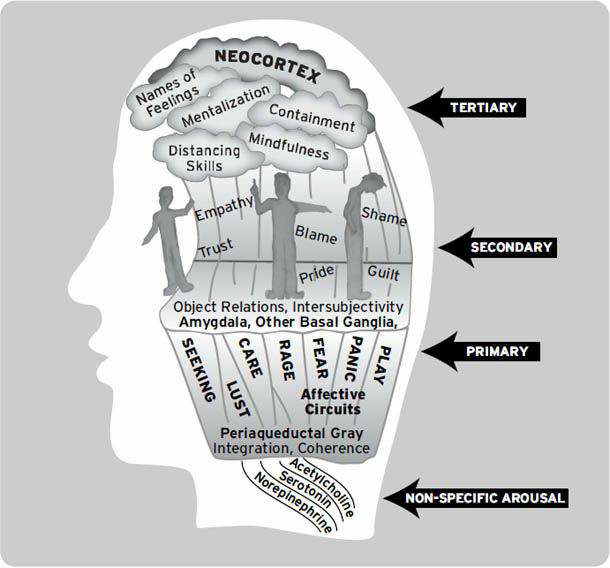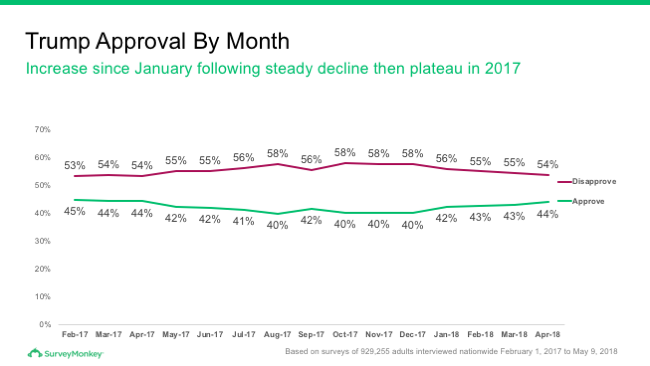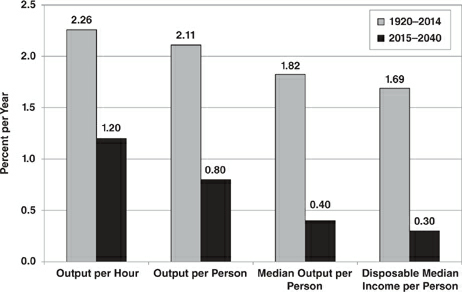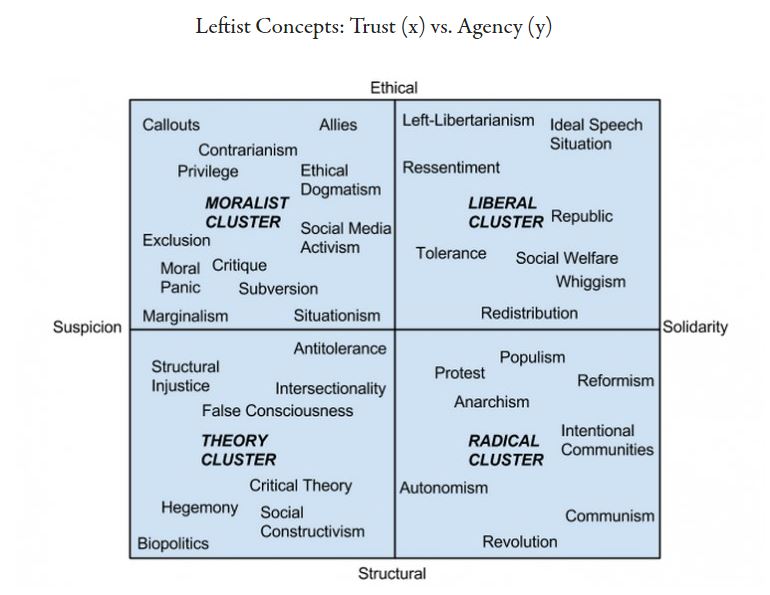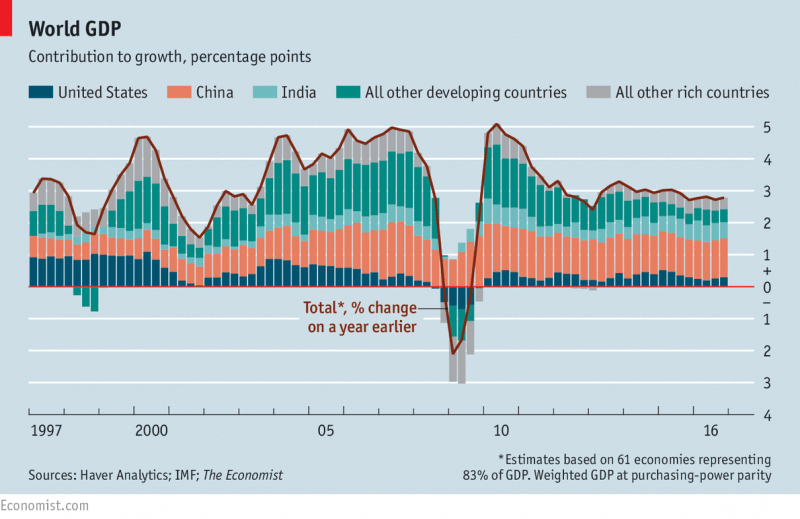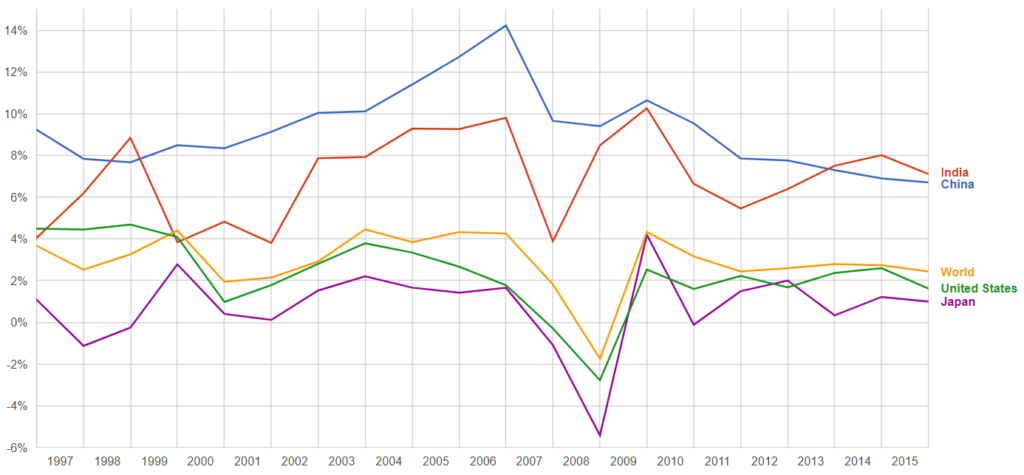There is surprisingly little left to say about Donald Trump. He has proven to be remarkably consistent in who he is, and people’s reactions remained remarkably consistent even in the face of some severe events. I wondered four years ago what it would take to have the bottom fall out of Trump’s support, and I still wonder that now.
Whether it’s Trump’s embrace and abandonment of everyone from Steve Bannon to John Bolton, his endless ability to bring out the worst in both his supporters and his opponents, or his careful management and exploitation by Mitch McConnell (the true Machiavellian here), Trump ceased to surprise many years ago. With impeachment, China, COVID-19, Amy Coney Barrett, right wing protests, left wing protests, and anything else, Trump has always turned to the same playbook and things have played out exactly as one could have predicted.
After an initial period of massive uncertainty during which it was uncertain how far the Trump team’s authoritarian tendencies would go, the would-be revolutionary Bannon faction was slowly purged from Trump’s sphere, and a sense of limits was established. Talk of executive branch coups died down, at least until this year. The Trump presidency settled into a regular cycle of constant pushing at the margins and endemic corruption, but little in the way of active dictatorship. Trump prefers things to come easily to him. When they don’t, he either ignores them, or when he can’t (as with COVID), he turns to self-pity rather than grand schemes.
Dr. Fauci and Dr. Birx, they’re highly thought of, but nobody likes me? It can only be my personality, that’s all
Donald Trump, July 28, 2020
Trump remains exactly what he was. In mid-2016 I compared him to Robert Musil’s Moosbrugger, calling him a non-politician with primeval charisma but an indifference to rationality and semantics.
Trump has no motive other than to be the dominant and not the dominated. The GOP convention paraded a roster of fearmongers to put people in a desperate and anxious frame of mind, all the better to paint Trump as their savior. Yet Trump offers no concrete plan of action, nor does he secretly possess one: he offers only the spectacle of himself.
Moosbrugger and Trump are, ultimately, only whom the rest of us perceive them to be. Such figures only desire that we perceive them as great. Because they are empty in and of themselves, they are constitutionally incapable of taking responsibility for anything they do, or of having any intuition that words and thoughts should accord with an external reality. Trump’s profound and sweeping ignorance of all things outside himself serves his narcissism; knowledge would only put constraints on his ability to be what people want him to be and what people will love him for: “So there he sat, the wild, captive threat of a dreaded act, like an uninhabited coral island in a boundless sea of scientific papers that surrounded him invisibly on all sides.”
Make America Austria Again: How Robert Musil Predicted the Rise of Donald Trump
Subsequent events only reinforced my impression of Trump:
Because Trump reacts to appearances, and cares only about his own appearance rather than accomplishing anything in itself, an issue truly does not register with him until it is public. And once it is public, he can’t let it go, whether it’s his 3 million popular vote loss or the size of the crowds at his inauguration. The news media, in turn, mindlessly feed this bottomless hunger by magnifying whatever the object of Trump’s angst is so that he sees it even more. It’s a codependent feedback loop.
February 14, 2017
His neediness and insistence on recognition in the absence of accomplishment became an active impairment to actual accomplishment.
Trump is driven by insecurity and narcissism to the point of constant distraction. Even leaving aside the wiretapping craziness, he apparently has a great man chart comparing himself to Obama, and he doesn’t feel he’s stacking up well.
March 14, 2017
With the decline of the Bannon faction, I raised the question of whether Trump would let himself become an establishment stooge or whether he would lash out against those who sought to use him for their own ends, McConnell and Paul Ryan chief among them.
Second, there is Trump himself, hobbled, humbled, and humiliated, but still defective and unpredictable. For now he seems to be guided by Jared Kushner above all in his desperate turn toward Goldman Sachs and McMaster, but when this turn fails to yield him love and success, as it will, it’s difficult to predict what will come next. At the center of the Trump administration remains the void himself, reluctantly allowing himself to be remade in the establishment mold, but still fundamentally incompetent and narcissistic and stuck in the midst of a party at war with itself.
April 22, 2017
Trump chose to become a stooge. The establishment Republicans still do not like Trump and consider him a pain, but they fundamentally made peace with him and brought him more or less under control. Republicans complain far less about Trump now than they did in 2017. That, more than anything else, is how pseudonormalization prevailed, and how a constant stream of Never Trumpism and petty scandals replaced a genuine factional war within the Republican party. Despite an inability to pass meaningful legislation beyond the tax bill, the Republican party as a whole won many battles in the early years, the judiciary chief among them, and winning heals.
And the stoogedom was likely decisive in letting pseudonormality prevail over periodic crisis points. The most significant one in the post-Bannon period was the firing of James Comey, treated as a constitutional crisis at the time, now a distant memory as merely the beginning of a blandly uneventful impeachment–itself a distant memory. At the time, I inclined toward believing that Comey’s firing would still recede into pseudonormalization.
Yet despite Trump’s engorged persecution complex and the sclerotic executive branch, I’m skeptical that we’ll reach the crisis point soon. Things could still calm down and we could return to another pseudonormalization period.
May 19, 2017
When that proved true, future “crises” lost their punch and relevance, even as they happened. By October, the cycle seemed established:
Patterns that were set in place by April or May have played out without too much alteration in the underlying dynamics.
For the news, this means alternating cycles of “Trump has done something newly awful and unthinkable” and “Trump is for the moment behaving and merely being his usual bad self” (palace intrigue, governmental incompetence, etc.).
For the administration, it means alternating between the creeping whiff of Muller’s detectives and ham-fisted attempts to accomplish anything whatsoever.
For the country, it appears to be a slowly increasing sense of detachment, as the promises of revival or totalitarianism fail to be realized. Even when an escalating event occurs, such as with Charlottesville or North Korea, there is no longer a sense that any tipping point has been reached.
October 16, 2017
And so it has remained. The most severe effects of the Trump administration are likely to be felt years down the line, not immediately, a consequence of the ongoing internal destruction of a government that once functioned rather well.
…and the Opposition
If there is one assessment that does need to be brought up to date, it’s that of the opposition. I have long said that Trump brings out the worst in both his supporters and his opponents, by enabling a damaging sort of Cortisol Politics:
Cortisol politics produces rhetorical excess and insincerity, sloganeering generated by the moment. It causes words to lose their meanings. It turns politics into an intrinsic game of manipulation, since reason is bypassed in favor of emotional appeals, primarily to negative emotions.
Cortisol Politics, July 8, 2018
That has proven true to a depth beyond which I’d conceived. Trump has nurtured a resistance “movement” that has often turned into a performative pantomime where righteous speech trumps meaningful action. There was a remission after the midterms and the change of power in the House of Representatives provided a symbolic and occasionally meaningful mooring for those who bemoaned an all-Republican government, though much of what the Republican wanted could be accomplished in the Senate and Presidency alone. But the election brought it back in full force.
If you believe that at least some of Trump’s excesses could have been tempered by smarter action on the order of the initial fight against the travel ban, then the majority of the last four years have been a cause for disappointment and even despair, as impulsive recrimination has replaced strategic thinking.
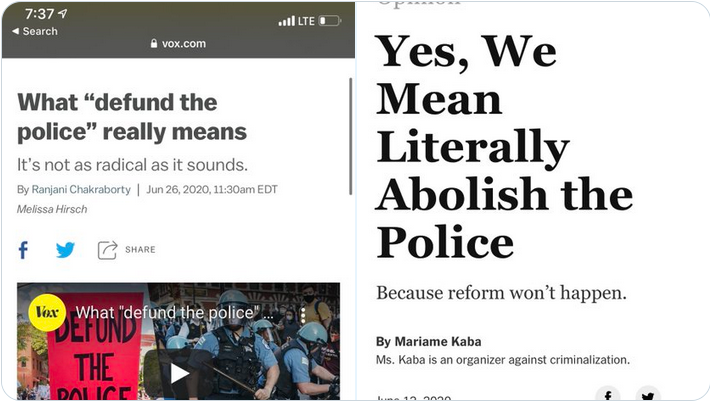
A slogan such as “Punch a Nazi!” simultaneously communicates empty machismo and blatant insincerity, neither especially inspiring. Complementing it were “We don’t really mean it but maybe we do” slogans like “Defund the police!” and “ACAB,” and amorphous calls for reparations, which functioned more as triggers for internecine conflict than rallying cries. Reparations holds particular resonance because its most prominent early advocate, Ta-Nehisi Coates, admitted to millennial uplift intent:
When I wrote ‘The Case for Reparations,’ my notion wasn’t that you could actually get reparations passed, even in my lifetime. My notion was that you could get people to stop laughing.
Ta-Nehisi Coates, March 20, 2019
The inflated hopes of reparations and “Pack the Court!” are partly just a consequence of cortisol politics, but also an indicator of the tension and exhaustion of constant political awareness. Some good may nonetheless come out of this hot air, but the missed opportunities are galling.
I continue to think that the main target of attack should have been Fox News, which functions as the main buoy for positive opinions on Trump. For those who find this to be too selective, I’d happily sacrifice CNN and MSNBC as well if Fox News went with them. The failure of the “resistance” to focus on the institutional strength of Fox News, instead engaging in a cult of anti-personality around Trump, led to a colossal waste of effort.
But faced with the pseudonormalization of Trump, the “resistance” collapsed into increasing incoherence and infighting. No factions were immune. Bernie Sanders, having run a shockingly effective insurgent campaign in 2016, ran a far less successful one in 2020.
Into this enervated bouillabaisse came Joe Biden, the face of Delaware, the DLC, and everything else the left wished to leave behind. The forced enthusiasm for him is more transparent than it was for Hillary Clinton four years ago. For vice president, Biden chose a figure who had attacked him for not supporting busing, only to effectively renounce busing herself the following day.
“I think of busing as being in the toolbox of what is available and what can be used for the goal of desegregating America’s schools,” she responded.
Asked to clarify whether she supports federally mandated busing, she replied, “I believe that any tool that is in the toolbox should be considered by a school district.”
In a tweet Wednesday, Biden deputy campaign manager Kate Bedingfield knocked Harris for her response, writing, “It’s disappointing that Senator Harris chose to distort Vice President Biden’s position on busing — particularly now that she is tying herself in knots trying not to answer the very question she posed to him!”
Harris says busing should be considered, not mandated, AP, July 4, 2019
A small incident, but one that sums up so much of the state of Democratic politics. The only more apt choice for VP would have been Condoleezza Rice.
Combined with the corporate coopting of fashionable resistance (MSNBC, Gillette, Oreo, you name it) and the resulting free advertising that can bypass even the most stringent adblocker, the rule for the left/resistance/opposition has become less “The master’s tools will never dismantle the master’s house” than “The master’s tools are great for remodeling the master’s house.”
The problem may ultimately be many people’s inability to accept the lack of control over the intrusion of national politics into their lives, an intrusion made incessant and violating by the ubiquitous presence of online media and cable television. Thirty, even 20 years ago, you could escape from the news for most of the day–you often had no choice but to do so. Now to do so requires active effort and one which most people do not take. The constant reminders of the existence of an unacceptable fact (Trump’s presidency, or for the other side, the supposed threat of forces arrayed against Trump) instill the conviction in many individuals that they can actually affect this fact in a meaningful, macroscopic way, and that therefore they must do so.
People want to feel good about themselves. The avenues society provides for doing so can be productive, non-productive, or destructive. Over the last four years, the actual causal efficacy of feel-good action has sharply declined across the board, even as people’s demand to participate in such action soared. An anonymous insider in Occupy echoed this problem:
One veteran organizer involved in New York’s Occupy movements, who asked not to be named, said, “Occupy is outside the authority of existing institutions. It’s a magnet for people who are needy and even pushy, abusive, and exploitative.”
Arun Gupta, Seattle’s CHOP Went Out With Both a Bang and a Whimper
The result has been a mutant politics combining the most ineffectual aspects of liberalism (empty utopian platitudes and lifestyle activism) and leftism (exclusionary and elitist self-policing and casual sanctioning of violence), resulting in a torrent of self-defeating sanctimony which has exhausted even its advocates—especially its advocates, in fact. Tired of chasing chimeric scandals to no gain, tired of punching Richard Spencer while Mitch McConnell runs the table, a once-promising self-organizing “resistance” ultimately has very little to its credit. The mobilization against the travel ban at the beginning of Trump’s presidency remains its greatest achievement, and one worth remembering.
If the upcoming election is disputed or stolen, perhaps the resistance will recapture some of the focus and efficacy it possessed in early 2017. It is a slim hope.
